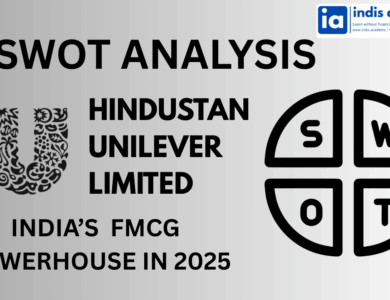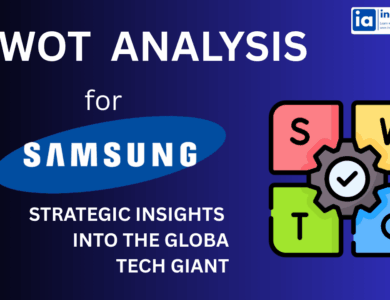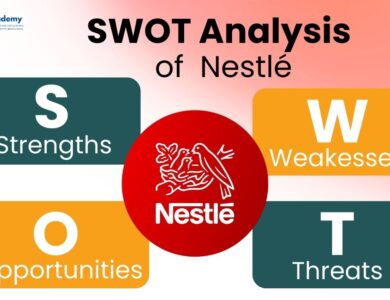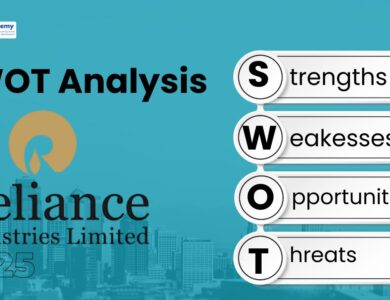Complete SWOT Analysis of Hyundai – A Deep Dive into the Korean Auto Giant
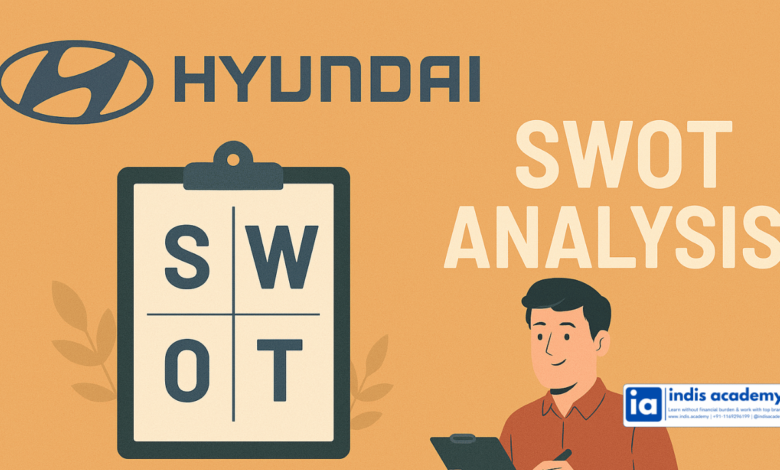
When you think of affordable, stylish, and reliable vehicles, Hyundai is likely one of the first names that comes to mind. From compact hatchbacks to cutting-edge electric vehicles, Hyundai has established itself as a global leader in the automotive world. What started as a humble South Korean automaker in the late 1960s has grown into one of the top five automobile manufacturers globally, known for its design innovation, technological advancement, and competitive pricing.
But in an industry that’s rapidly evolving with electric mobility, autonomous driving, and sustainable practices, how does Hyundai continue to stay relevant and competitive?
In this article, we’ll conduct a complete SWOT analysis of Hyundai, exploring the brand’s Strengths, Weaknesses, Opportunities, and Threats. Whether you’re a business student, auto enthusiast, or market analyst, this breakdown will give you deep insights into how Hyundai is navigating the future of global mobility.
Learn AI & Digital Marketing,
Pay Fees After Placement
- ✅ Minimal Admission Fees
- ✅ No Loan or Income Sharing Agreement
- ✅ 100% Placement Support
- ✅ ISO & Govt Registered Certificate
- ✅ Practical 3+1 Months Duration
Get a free counseling call. We’ll guide you through learning, certification, and job placement.
Request a Free Call Back
Takes less than a minute.
Company Overview – About Hyundai
Hyundai Motor Company, founded in 1967 in South Korea, has grown from a regional automaker into a global automotive powerhouse. It operates under the umbrella of the Hyundai Motor Group, which also includes Kia Motors and luxury brand Genesis. Together, they form the third-largest car manufacturer in the world by production volume.
Hyundai’s success comes from its ability to blend affordability with innovation. It’s known for producing vehicles that are feature-rich, fuel-efficient, and stylish, without compromising on value. The company has gained a strong foothold in emerging markets like India, Southeast Asia, and Latin America, while also pushing boundaries in developed markets with premium EVs and hydrogen-powered vehicles.
Flagship models include the Hyundai Creta, Tucson, i20, Verna, and electric vehicles like the Ioniq 5 and Kona Electric. Hyundai is also investing heavily in autonomous technology, hydrogen fuel cell innovation, smart mobility solutions, and sustainability as part of its “Progress for Humanity” vision.
Quick Snapshot: Hyundai vs Key Global Competitors
| Brand | Country | Key Strengths | Market Focus |
|---|---|---|---|
| Hyundai | South Korea | Affordable innovation, EV expansion | Global (Asia + West) |
| Toyota | Japan | Reliability, hybrid tech | Global |
| Volkswagen | Germany | Engineering, premium mid-segment | Europe, Americas |
| Tesla | USA | EV leadership, autonomous tech | EV-focused (West-heavy) |
| Honda | Japan | Fuel efficiency, city cars | Asia & North America |
What is SWOT Analysis?
A SWOT analysis is a strategic planning tool used to evaluate a company’s internal capabilities and external environment. It breaks down four key components:
- S – Strengths: What the company does well and the unique advantages it holds
- W – Weaknesses: Internal challenges or limitations that may hinder performance
- O – Opportunities: Emerging trends or market conditions the company can capitalize on
- T – Threats: External factors that pose risks to growth or competitiveness
For a global automotive brand like Hyundai, which operates in a dynamic, tech-driven, and sustainability-conscious market, a SWOT analysis helps uncover how it stays relevant, where it can improve, and what it must guard against to thrive in the long term.
Now, let’s take a closer look at Hyundai’s core strengths that fuel its success across continents.
Hyundai’s Strengths
Hyundai’s global success is no accident. The brand has consistently focused on value, innovation, and customer trust, giving it a solid edge over many of its competitors. Let’s break down the key strengths that drive Hyundai’s leadership in the auto industry:
🚗 1. Strong Global Brand Recognition
Hyundai is recognized and respected in over 190 countries, known for producing cars that combine affordability, quality, and reliability. Its branding resonates with both budget-conscious buyers and tech-forward consumers.
💡 2. Innovation in Design and Technology
Hyundai has invested heavily in R&D, futuristic design, and smart features. From its “Sensuous Sportiness” design philosophy to its Bluelink connected car tech, the brand is pushing boundaries in both form and function.
⚡ 3. Early Leadership in EV & Green Mobility
Hyundai was one of the first mainstream automakers to embrace electric and hydrogen-powered vehicles. Models like the Ioniq 5, Kona Electric, and NEXO (hydrogen) have positioned the brand as a serious player in the EV revolution.
💰 4. Value-for-Money Product Line
Hyundai offers feature-rich cars at competitive prices, making it extremely popular in price-sensitive markets like India and Southeast Asia. Its low maintenance costs and solid warranty further enhance value perception.
🌍 5. Strong Presence in Emerging Markets
In countries like India, Brazil, and Indonesia, Hyundai ranks among the top 3 carmakers, thanks to localized manufacturing, region-specific models, and strong dealership networks.
🧠 6. Vertical Integration & High Production Capacity
Hyundai builds many of its components in-house, including engines and transmissions, giving it greater quality control, scalability, and cost efficiency—especially in uncertain global supply environments.
Together, these strengths form the foundation of Hyundai’s ongoing growth and global dominance.
Hyundai’s Weaknesses
While Hyundai has built a strong reputation worldwide, it still faces some internal challenges that could affect its growth, innovation pace, or brand positioning—especially in a competitive, tech-driven automotive industry.
⚠️ 1. Brand Perception in the Premium Segment
Despite improvements in design and features, Hyundai still struggles to match the premium brand perception of companies like BMW, Audi, or even Toyota in certain global markets. Its luxury division, Genesis, is growing but hasn’t yet fully closed the gap.
🛠️ 2. Past Recalls & Quality Control Concerns
The company has experienced several vehicle recalls over the years, especially in the U.S. and Europe, related to engine issues, brake systems, and airbag defects—impacting brand trust in some segments.
📉 3. Overdependence on Specific Markets
A significant portion of Hyundai’s global sales come from a few key markets like South Korea, India, and the U.S.. This leaves the company vulnerable to regional economic slowdowns, regulatory changes, or political tensions.
🔧 4. Limited Customization in Some Regions
Compared to regional rivals or niche brands, Hyundai offers less personalization or localized variants in some international markets, which may affect consumer engagement.
💵 5. Slim Margins in Budget Segment
While Hyundai thrives on affordable car sales, profit margins in the low-cost vehicle category are relatively thin. It needs continued success in premium, EV, and tech-forward segments to balance its revenue mix.
Addressing these weaknesses will be key if Hyundai wants to scale its premium appeal, build global trust, and stay ahead in the evolving mobility landscape.
Hyundai’s Opportunities
The global auto industry is rapidly transforming, and Hyundai is uniquely positioned to take advantage of several emerging opportunities. By tapping into these trends, Hyundai can strengthen its global footprint and future-proof its business.
⚡ 1. Expanding Electric Vehicle (EV) Lineup
Governments worldwide are offering EV incentives and phasing out internal combustion engines. Hyundai’s growing range — including the Ioniq 5, Ioniq 6, Kona Electric, and upcoming EVs — positions it to compete directly with Tesla, BYD, and Volkswagen.
💧 2. Leadership in Hydrogen Fuel Cell Technology
While most automakers focus solely on EVs, Hyundai is pioneering hydrogen-powered mobility with vehicles like the NEXO. This gives the brand a first-mover advantage in alternative green fuel segments.
📈 3. Growth in Emerging Markets
With rising incomes and urbanization in countries like India, Vietnam, and parts of Africa, Hyundai has a golden opportunity to capture aspirational first-time buyers by offering feature-packed, affordable cars.
🧠 4. Smart Mobility & Autonomous Tech
Hyundai’s investments in autonomous vehicles, mobility platforms, and urban air mobility (UAM) — including its stake in Boston Dynamics and collaborations with Uber — can help it become more than just an automaker.
🛒 5. Direct-to-Consumer (D2C) & Digital Retail
Consumers are embracing online car buying and virtual experiences. Hyundai can innovate further by launching immersive, AI-powered, and contactless purchase platforms, especially in developed markets.
By capitalizing on these opportunities, Hyundai can evolve from a value-based car manufacturer into a tech-savvy, mobility-focused global leader.
Hyundai’s Threats
Despite its impressive global presence and innovation efforts, Hyundai operates in an industry that’s constantly evolving — and often, unpredictably. Here are the major external threats that could impact Hyundai’s growth and market dominance:
⚔️ 1. Intense Global Competition
Hyundai competes with legacy automakers like Toyota, Honda, and Volkswagen, as well as new-age disruptors like Tesla, NIO, and BYD. With every brand racing toward EV leadership and autonomous driving, staying ahead in tech, design, and pricing is a constant battle.
🔌 2. Supply Chain Disruptions & Chip Shortages
The global automotive sector continues to face semiconductor shortages, rising raw material prices, and shipping delays, all of which can impact Hyundai’s production schedules and delivery timelines.
🏛️ 3. Regulatory Pressures & Emission Norms
Tightening emission standards in the EU, US, China, and other regions are forcing automakers to rapidly adapt or risk fines, delays, or bans. Adapting to these changes increases costs and complexity.
📉 4. Economic Uncertainty & Inflation
Global economic slowdowns, interest rate hikes, and inflation can reduce consumer purchasing power, directly affecting automobile demand—especially in the mid and entry-level segments where Hyundai thrives.
🔐 5. Cybersecurity & Tech Integration Risks
As vehicles become more connected, Hyundai faces growing cybersecurity threats, along with challenges in maintaining data privacy, software integrity, and seamless over-the-air updates.
To stay future-ready, Hyundai must invest in tech resilience, diversify geographically, and continue adapting quickly to new consumer expectations and regulatory frameworks.
How Hyundai Is Evolving with the Future of Mobility
Hyundai is no longer just a car manufacturer—it’s transforming into a future-ready mobility brand. With a bold vision backed by innovation, Hyundai is actively preparing for a world driven by electric vehicles, automation, AI, and sustainable transport solutions.
⚡ Leading the EV Shift
With the launch of the Ioniq brand, Hyundai has committed to rolling out over 17 EVs by 2030. Models like the Ioniq 5 and Ioniq 6 have already received global acclaim for their design, range, and features—positioning Hyundai as a serious rival to Tesla and European EV players.
💧 Investing in Hydrogen & Clean Tech
Hyundai is one of the few automakers doubling down on hydrogen fuel cell technology, with models like the NEXO and its ambitious HTWO hydrogen vision. This sets it apart in the race toward multi-path green mobility.
🧠 Smart, Autonomous, and Connected Vehicles
From Level 3 autonomous driving capabilities to in-car AI assistants and Bluelink connected tech, Hyundai is bringing smart mobility to the mass market. Its acquisition of Boston Dynamics also hints at future integrations with robotics and AI.
🛩️ Urban Air Mobility & Robotics
Through its Urban Air Mobility division and partnership with Uber Elevate, Hyundai is exploring flying cars and aerial ride-sharing, while robotics advancements point toward a new era of personal mobility and service bots.
With these moves, Hyundai is not just keeping up with the future — it’s helping shape it. The company’s motto, “Progress for Humanity,” reflects a deep commitment to making transportation more sustainable, smart, and accessible for all.
Conclusion & Final Thoughts
Hyundai’s journey from a humble South Korean automaker to a global mobility innovator is nothing short of remarkable. Through a combination of value-driven products, bold design, technological innovation, and global strategy, Hyundai has built a strong and trusted brand across both developed and emerging markets.
This SWOT analysis of Hyundai highlights a company with solid strengths—from EV leadership to a wide global footprint. Yet, it also reveals real challenges, including brand perception in the luxury space, global competition, and supply chain volatility. But with clear opportunities in electric mobility, smart cities, and connected tech, Hyundai is well-equipped to lead the next generation of mobility.
As the automotive industry moves toward an electrified, autonomous, and sustainable future, Hyundai’s commitment to “Progress for Humanity” ensures it won’t just follow the curve—it will help define it.
